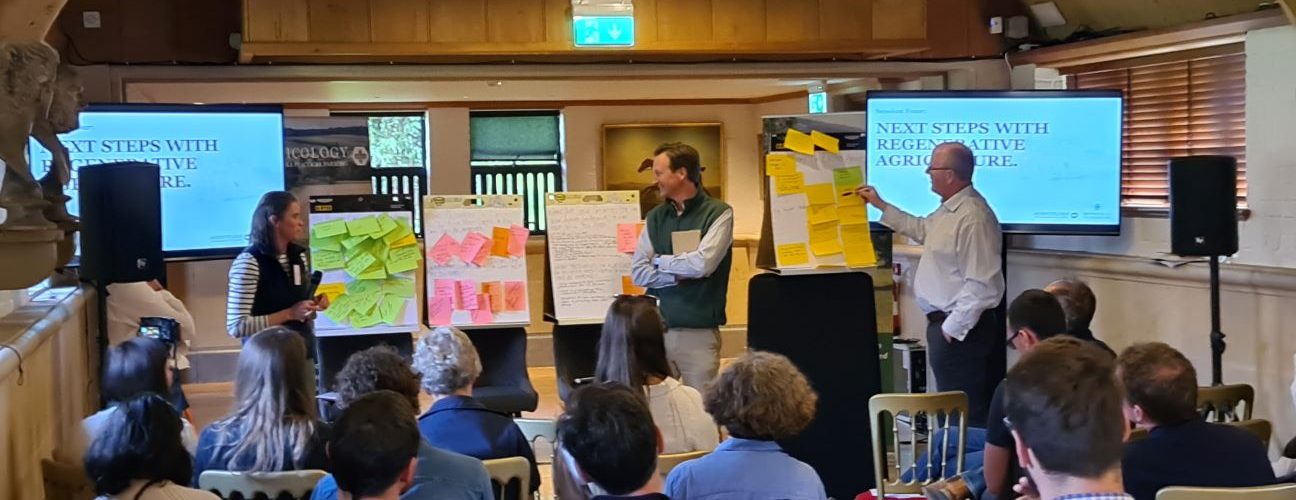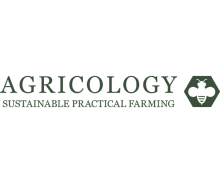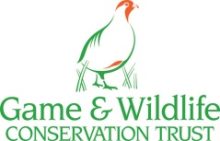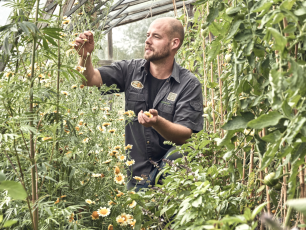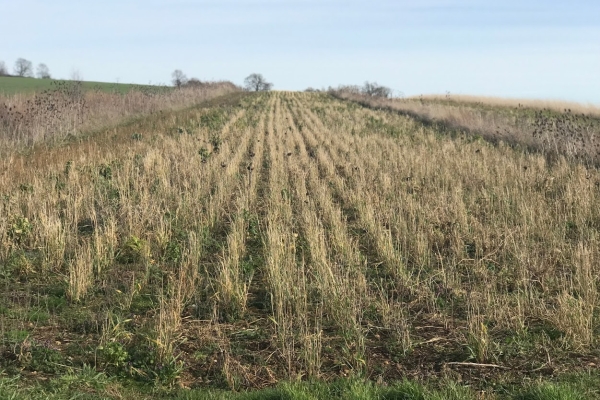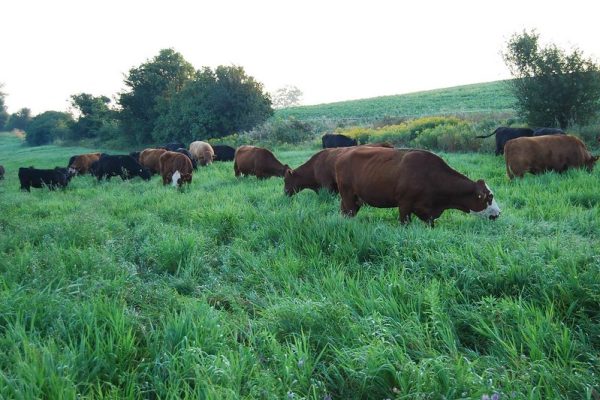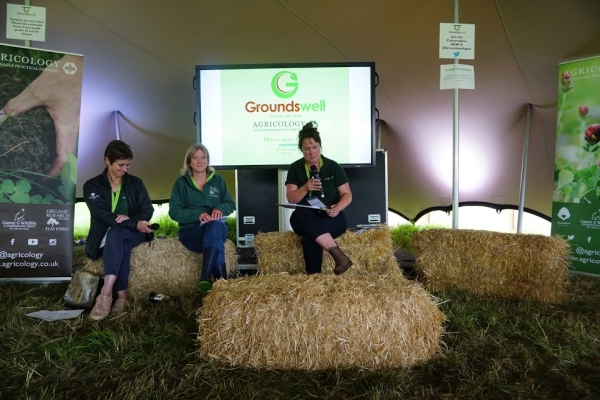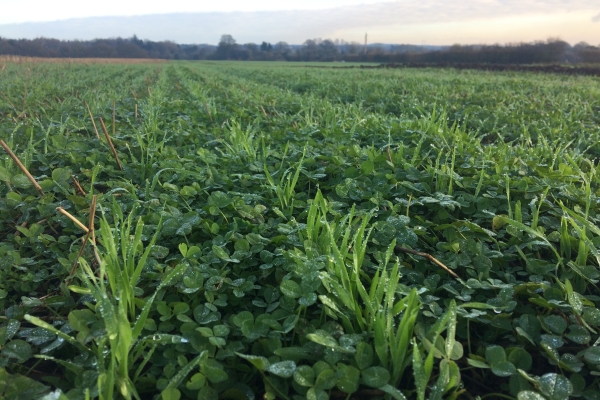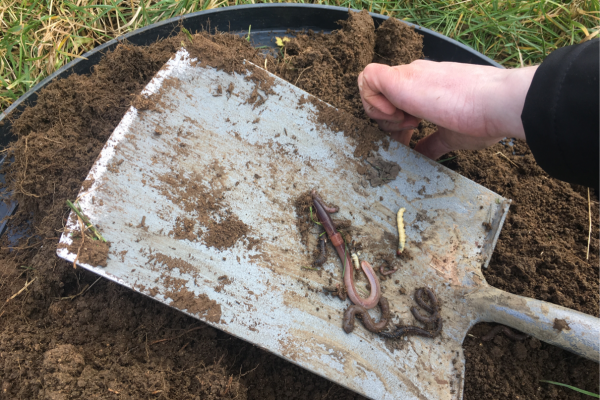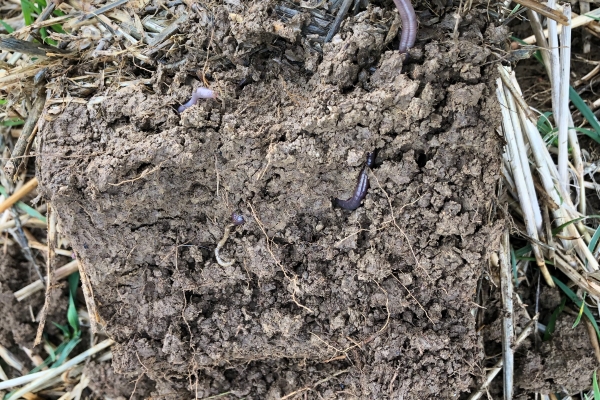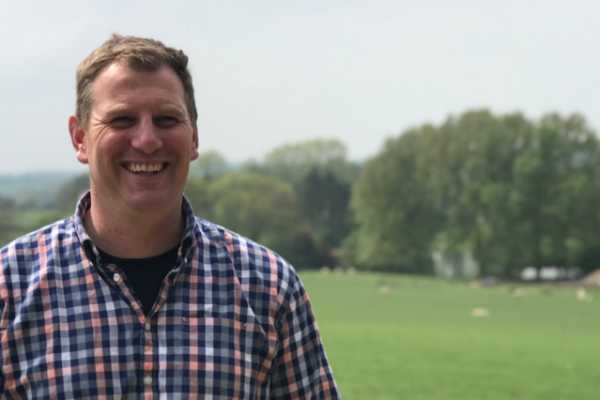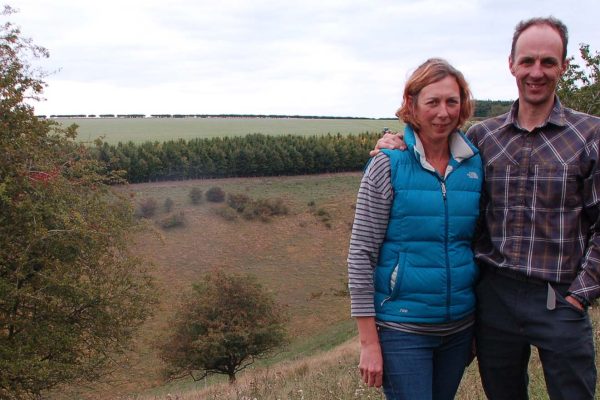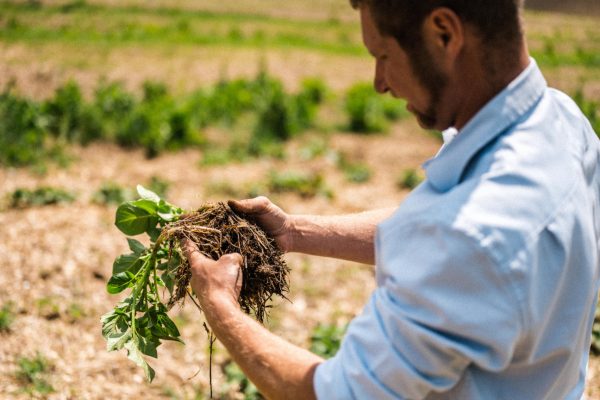Soil Time
With the sun shining and the most fantastic range of speakers lined up, the Agricology team and a mix of farmers, growers and industry professionals gathered on Tuesday 23rd May at the Dairy, Waddesdon Estate, for some ‘soil time’ discussing ‘Getting Started with Regenerative Agriculture.’
Our event was part of our wider ‘Down to Earth’ project, which is aimed at sharing regenerative and sustainable farming approaches being used at the Waddesdon Estate and beyond. The day was funded by the Rothschild Foundation and was created to help farmers and growers learn about how they can get started with regenerative agriculture; helping to identify which techniques could be suitable for their farming system(s), and providing some useful pointers on ways to making things financially viable.
Alice Midmer, who is part of the Agricology Advisory Group and works at GWCT’s Allerton Project, did a fantastic job chairing the day, and started us off with a brief overview of what regenerative agriculture is. She highlighted the similarities and overlaps within methods of farming that are largely considered to come under the umbrella of ‘sustainable’, ‘Integrated Farm Management’, ‘conservation agriculture’, ‘organic’, and ‘agroecological’. She emphasised that ultimately it’s all about good environmental farming and trying to make it better…
“Fundamentally regenerative farming is about regenerating something, making it better, making more of it and increasing the health of the environment. Regenerative agriculture has caught the attention of many because it is aspirational and exciting. It is about improving farming systems.”
Specifically, it is about creating diversity in your rotation, protecting the soil surface, maximising on living roots in the soil, minimising soil disturbance, and reintegrating livestock where possible. A sixth principle that has been added in recent years is context; doing the right thing at the right time in the right place, and at the right point in your journey of change.
Our opening speaker was Fabia Bromovsky, who introduced the Global Farm Metric tool. We started with introducting this tool as it highlights overarching key aspects and challenges; how do we measure what we’re doing, how do we know if we’re really doing it, and how do we track change on that journey? You can watch Fabia’s talk here:
Session 2 saw Phil White from D’Oyleys Farm, Nick Down from the Yattendon Estate and Matthew Izod from Priory Farm share their stories of how they got started with regenerative farming, and where they’ve had successes and difficulties with adopting regenerative approaches. Watch their fascinating talks and the equally fascinating Q & A session here:
After lunch Tim Coates of Dunthrope Farm and Oxbury Bank gave a great talk on how to make things work financially, sharing stories from his own farm and explaining how Oxbury Bank are trying to take a different approach on lending to farmers. Footage of his talk will be available soon.
The final speaker of the day was Stephen Briggs, who shared stories from his farm and imparted lots of insights in to how he has successfully integrated large-scale agroforestry on his tenant farm in Cambridgeshire. He followed this up by drilling down into economic models that can be linked to agroforestry and how to asses where value can be added in the food chain on individual farms. Footage of his talk will be available soon.
We finished off the day with a breakout session where we asked attendees to answer a few questions that could identify what they found most valuable from the talks given during the day and help us get an overview of the challenges being faced, so that we can make sure that we tailor the most useful content on Agricology for you over this coming year .
We’ve collated the answers to those questions below into a few word clouds, hope they bring a little food for through for those of you stepping out on the ‘regenerative agriculture’ journey…
My biggest challenge in adopting regenerative agriculture…
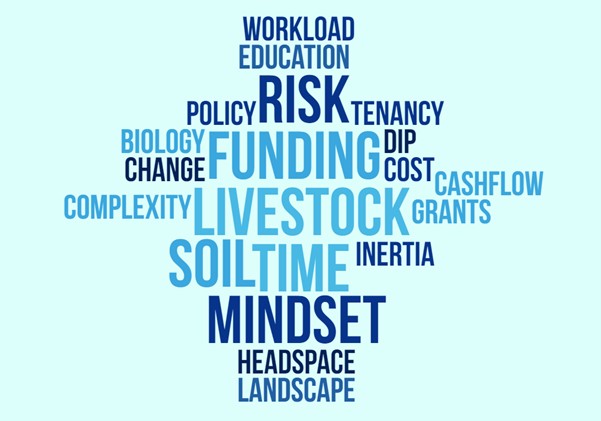
Priorities for the year ahead with regenerative agriculture and the help I will need…
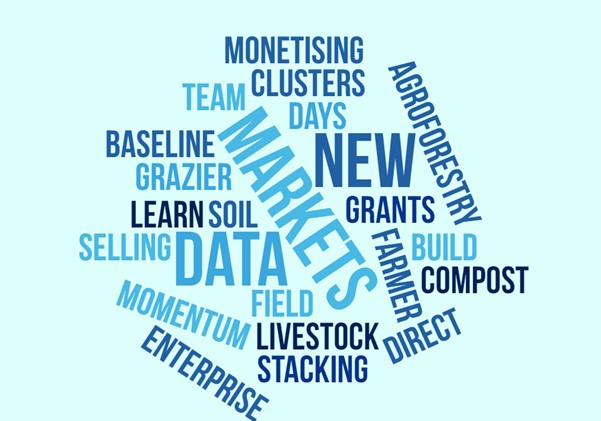
From today I am most excited about…
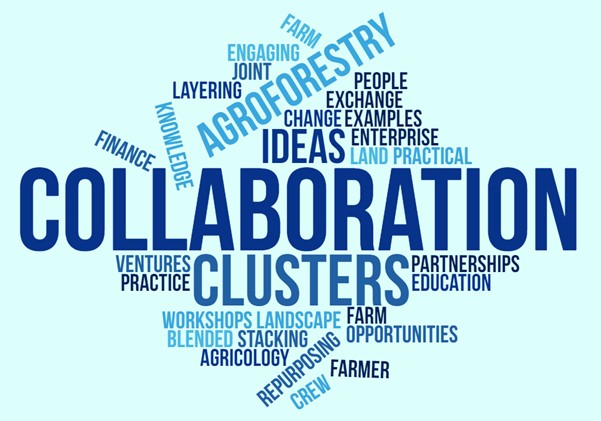
Our thanks go out to Alice Midmer who did a fantastic job chairing the day, all the speakers whose shared insights and gave a great depth of inspiration and ideas to all who came, to Waddesdon for the beautiful venue and amazing food, and the Rothschild Foundation who made the day possible. There is a lot more to come as part of our ‘Down to Earth’ project, so watch this space!
